Campaign Approach to Reaching Black Audiences
To print this document, use your internet browser’s print settings to set page margins and remove the header and footer. For the best printing experience, use the Google Chrome, Firefox, or Microsoft Edge browser.
Table of Contents:
Overview
- Representing nearly 13% of the U.S. population, the Black community is one of our country’s communities that was hit hardest by the COVID pandemic, and reaching this audience is essential. According to the Centers for Disease Control and Prevention (CDC) Data Tracker, as of July 20, 2022, 42.8% of the Black population was fully vaccinated. This uptake is the lowest among all races/ethnicities.
- CDC data shows that Black Americans are equally as likely to contract COVID as are non-Hispanic White Americans; however, they are more than twice as likely to be hospitalized as a result and nearly twice as likely to die from it (CDC, 2022).
- According to CDC’s weekly tracker on vaccine demographics, only 44.1% of Black Americans ages 12 years and older who are eligible for a booster dose have received one booster as of July 20, 2022, compared to 55.6% of White Americans ages 12 and older who are eligible for a booster.
- To reach this important and high-risk community, the Campaign has created a steady drumbeat of activities, including Campaign ads featuring trusted messengers like Black doctors, engagement of Black media, community outreach vaccination events, and partnerships with organizations embedded in these communities.
Audience Market Research and Testing
A robust and continuous cycle of research drives all Campaign activities, including the approach to reaching Black audiences.
- Primary research includes focus groups and interviews, creative testing surveys, and a weekly current events survey (a probability-based survey of 1,000 representative U.S. adults ages 18 and older), with findings provided by key demographic groups. Additional research includes audience segmentation and monitoring of news stories, social media, and secondary research. Findings are summarized for use across the Campaign.
- Additional outcome surveys and analysis, along with social listening, enable performance tracking and real-time impact assessment to inform quick adjustments to messaging in a rapidly changing environment.
Key Messages for Audience
To ensure cultural relevance and sensitivity in messaging to Black audiences, Campaign efforts are guided by a Black-owned marketing agency with up-to-date information on the latest trends, topics, and discussions within the Black community to ensure alignment with the current state of the pandemic and social climate.
Messaging guidance is based on qualitative and quantitative message testing insights, guidance from the CDC, expert recommendations from audience-specific creative agencies, environmental scans, credible external research results, social listening, and iterative testing, among other inputs. Recent research for this audience demonstrates the following:
- Messaging concepts with an overall positive tone and a focus on family resonated strongly with participants in recent focus groups. A focus on community also resonated among Black/African American focus groups.
- People respond positively to diversity and representation of all ages, genders, races/ethnicities, and abilities, and to seeing people like them.
- Doctors and primary health care providers are trusted the most for accurate information about COVID and COVID vaccines.
Current Campaign messaging centers on encouraging boosters among the highest-risk populations—older adults and those with chronic medical conditions that make poor COVID outcomes more likely. Specifically relevant messages for speaking about boosters to those who are 50 and older are:
- During the peak of the Omicron surge, people 50 and older were hospitalized with COVID at twice the rate of younger adults and those 65 and older were hospitalized with COVID at 4 times the rate of younger adults.
- Nine out of 10 people who have died from COVID in the United States have been 50 or older and three out of four have been 65 or older.
- Rates of diabetes and hypertension are higher in the Black population than among non-Hispanic Whites, and these conditions, as well as cancer or lung, heart, or kidney disease, can make it more likely that people will die from COVID if they get infected.
Campaign research has demonstrated that across all audiences, messages that indicate that vaccines and boosters together protect against the worst outcomes of COVID and that boosters extend protection to keep one safe from emerging variants were generally the most effective at driving intent to get a booster shot. For the Black audience specifically, the following message was shown to be the most effective:
- COVID can cause severe disease, hospitalization, or death. COVID vaccines and boosters protect people from the worst outcomes of COVID, and also help reduce the spread of COVID in communities, further reducing risks for our most vulnerable populations.
Other Campaign messages continue to encourage parents to vaccinate their eligible children. For Black parent audiences, trusted messengers include pediatricians and parents who are perceived to be knowledgeable or relatable having positive experiences with the COVID vaccine for their children. Hearing from parents who are health care providers or from parents who were initially hesitant to get their children vaccinated may reassure parents about vaccinating their young children.
Messages about the benefits of being vaccinated are more effective than those that focused on the risks of children having COVID. However, campaign research with parents suggests that no single message is effective across parents with children of different age groups.
- Messaging directed toward parents of children under 5 years old should address vaccine safety, the benefits that the COVID vaccines can have on parents, and that pediatricians strongly recommend getting children vaccinated against COVID.
- One message specifically drives vaccination intention the most effectively for Black parents with children ages 5 to 17: “The vaccine offers the best protection available for your child from severe illness or death if they get COVID.”
Partnerships and Outreach
Key Activities and Metrics
As part of a robust partnership strategy, our approach to building relationships within the Black community includes engaging community partners serving Black audiences where they are and supplying them with the resources they need to communicate with their constituencies. Our portfolio of partner organizations includes corporate, sporting, and not-for-profit national organizations with unique reach into the Black community.
- Toolkits: Created and updated communications toolkits provided for community/civic organizations, historically Black colleges and universities (HBCU), and families.
- Partners: Secured more than 220 active locally based collaborative partners, including community-based organizations, service organizations, health organizations, family organizations, educational institutions, faith-based organizations, and coalitions.
- Trusted voices: The W. Montague Cobb/NMA Health Institute conducted 35 interviews with Black physicians for the Campaign to use as shorter, “snackable cuts” focused on a variety of questions and answers about COVID vaccines. More than 50 additional video sound bites are being finalized to be distributed through community organizations in the physicians’ respective cities with an estimated reach of 250,000–300,000 per snackable post.
- In-person events: Partnership agreements with premier health and service organizations (Women’s Missionary Society Foundation, The Links, Inc., National Coalition of 100 Black Women, Black Women’s Agenda) are reaching communities of color. Events initiated with these partners have an estimated reach of over 2 million people. A combination of over 80 in-person and digital efforts have been hosted with many more planned through September. Examples:
- Stay Well Community Health Fairs and Vaccine Events in partnership with the W. Montague Cobb Institute provided a grassroots approach to reaching Black audiences in cities that have high vaccine hesitancy and low vaccination rates.
- We have supported a total of 23 fairs/activation events with 5,049 attendees,1,962 vaccinations (1,273 Boosters; 352 Children, 336 Adult 1st/2nd dose), 1,462 health screenings, 3,391 health resources provided, and 1,142 trusted experts who attended and participated.
- Earned media coverage of these events has brought a total reach of over 2 billion impressions to date in targeted cities with large Black audiences, including Detroit, MI, Memphis, TN, Shreveport, LA, Atlanta, GA, and New Orleans, LA.
- This integrated effort has included all aspects of paid and earned media and creative content to provide resources to local hosts and local community partners in support of the “Stay Well” health fairs.
- The Campaign began collaborating with Black Men Engaged in December and together has reached more than 350,000 people through local events in Albany, GA, and Jacksonville, FL. Partners have included businesses such as Lyft, government partners, such as the City of Albany and elected officials, and community partners, including Agape Health and First Coast Leadership Foundation.
- Stay Well Community Health Fairs and Vaccine Events in partnership with the W. Montague Cobb Institute provided a grassroots approach to reaching Black audiences in cities that have high vaccine hesitancy and low vaccination rates.
Paid Media
Key Activities and Metrics
- National, regional, and hyperlocal paid outreach to Black adults has run in 150+ media markets between 8/01/2021 and 07/31/2022 in 125+ local and national print publications, and across 1,800+ radio stations within programming consumed most by the Black audience. More than two-thirds of the media spend for Black audiences to date has been via Black owned and operated media partners.
- Researched and developed comprehensive, audience-tailored media plans, aimed at supporting both national audiences as well as local Black priority markets; Media channels included TV, print, radio, digital, social, and digital out-of-home (DOOH).
- 142K+ radio spots on more than 1,855 radio stations ran to support Campaign goals and initiatives.
- 420M out-of-home impressions ran across digital platforms and screens across the nation.
- 39.8K TV spots ran within 75+ local Black priority markets.
- o 9.3M+ print impressions were served against the Black audience through 125+ local and national print publications.
- Partnered with and used trusted voices within local Black communities, such as radio DJ personalities, in order to have Campaign messaging delivered by familiar and credible voices within the Black communities.
- Custom-designed media channel segmentation and mixes to reach narrow groups within the larger Black community, including parents, young adults, and those ages 65 and older.
- Negotiated over $6M in added value placements across radio, print, TV, and OOH platforms, increasing the overall reach and frequency of Campaign messaging above and beyond what was purchased.
- Developed relationships with trusted Black associations, such as the National Association of Black Owned Broadcasters (NABOB) and the National Newspaper Publishers Association (NNPA). Additional sponsorships with local Black-owned-and-operated stations and media partners include DeDe in the Morning, ReachONE, and Café Mocha Radio.
- Worked in partnership with Sony Studios and Columbia Pictures, the Incubation Lab, and PlayersTV to have select NBA athletes and their families talk about their experiences with COVID and the hope provided by the vaccine.
- Ran Black History Month-themed digital ads and a SHEMedia placement through their network of black-owned publishers and channels that celebrate diversity.
Milestones
- Early in the Campaign, Slow the Spread efforts included customized collateral for this audience to reinforce basic prevention measures with ads in radio, newspaper, digital, and social media.
- Building Vaccine Confidence, the Campaign’s advertising push, included TV, radio, newspaper, digital and social media, and DOOH for this audience, initially focusing on seniors as the first eligible for vaccinations, then targeting health navigators—the health care decision-makers in families, young adults, and now parents of children eligible for vaccination as CDC has announced new eligibilities. Tailored ads for boosters are also part of the Campaign.
Earned Media
Key Activities and Metrics
The Earned Media team works with more than 140 local media partners, including Black owned and operated and mainstream media to secure earned media coverage as part of this Campaign. The team has used a strategic approach that focuses on news outlets and platforms in communities with large Black populations.
- In an effort to amplify trusted messenger voices, we have placed Black physicians— both local doctors and HHS spokespeople—on iHeart nationally syndicated programming, including The Steve Harvey Show, The Breakfast Club, and iHeart Communities, a national public affairs program. We have also placed local Black doctors on numerous local or regional iHeart radio shows.
- To date, Earned Media placements have included more than 60 total television, radio, podcast, and print interviews, garnering 1.6 billion impressions. Recent examples include these:
- Pediatrician Dr. Nina Ford Johnson was featured on the Therapy for Black Girls Podcast discussing children and the COVID vaccine.
- Pediatrician Dr. Kimoyo Williams was featured on Rolling Out Magazine’s Health IQ..
- Internal Medicine and Pediatrics physician Dr. LaTonya Washington MD, was featured on Action 24 in Memphis, TN, discussing vaccinating young children.
- The campaign has placed original stories and campaign content across 74 outlets, including national platforms like Rolling Out, SwagHer, and Heart and Soul Magazines, as well as AFRO American Newspapers, with more than 24 million aggregate readership; for example, Vaccinations Look to Serve as Further Protection for Children and Their Future: What We’ve Learned So Far.
- Working directly with nationally syndicated radio shows, including the DeDe in the Morning Show (more than 50 markets nationwide) and Café Mocha Radio (over 35 markets reaching 1.4 million weekly listeners) to place Black doctors from the National Medical Association/Cobb Institute for interviews.
Trusted Messengers
Key Activities and Metrics
- The Campaign reached more than 96,900 accounts during a social media influencer campaign on Instagram in May and June 2022 with three trusted Black influencers:
- Dr. Charis Chambers – 132,000 followers
- HBCU Pride Nation – 164,000 followers
- DJ Wild Wayne – 65,000 followers
- Through Twitter/Opendorse, we have leveraged NBA players Mike Conley Jr., Karl-Anthony Towns, and Jrue Holiday to create custom video messages promoting getting vaccinated and boosted that they posted on their Twitter handles in mid-April. Paid media boosted these messages. This effort ran during the NBA playoffs.
- In collaboration with the content creation agency Mom 2.0, we built a national influencer campaign with high-profile Black influencer Kelly Rowland, 20 community influencers, and six digital community networks to connect with parents and promote awareness around COVID vaccine facts for children ages 5+.
- Through Twitter/ArtHouse, we worked with three Young Adult influencers, including Black influencer @MacDoesIt, to produce original content for Twitter promoting COVID vaccination. The content produced by @MacDoesIt saw the strongest performance: His video was deeply personal, speaking about his experience contracting COVID and his struggle with it, and drove over 7.5 million video views on the platform.
- The Campaign, in collaboration with BuzzFeed, engaged Black creator @Freddie, who created and launched content via Instagram to share the impact and benefits of COVID vaccines and to encourage others to get vaccinated.
Creative Approach
- To ensure cultural relevance and sensitivity in meeting the Black audiences’ needs, Campaign efforts are guided and primarily developed by a Black-owned agency with nearly 3 decades of experience within the community.
- We develop assets based on data and research that reflect the overall diversity of the Black community. Incorporating Black doctors and other appropriate Black influencers across workstreams, including paid media, increases their visibility as trusted messengers and helps spread Campaign messaging.
- By staying up to date on the latest trends, topics, and discussions within the Black community, we ensure that all Campaign activities are aligned with the current state of the pandemic and social climate.
- Our advertising is interactive and visually stimulating (more animations, increased focus on video, etc.) for better engagement with Black audiences, and particularly young Black audiences (scenarios in gaming, dating, music, etc.).
Creative Samples
- Launched December 2021

- Launched December 2021, June 2021, Spring 2021

- Testimonial Ad with NBA’s Jrue Holiday, Launched November 2021 and "Let’s Press Play TV, and Digital Ad, Launched May 2021

- ""I'm a Mom First" Launched January 2022

- "Excellence Continues" and "Our Heroes" Digitial Ads launched February 2022

- Banner Launced February 2022

- "It’s a Family Thing" launched March 2022
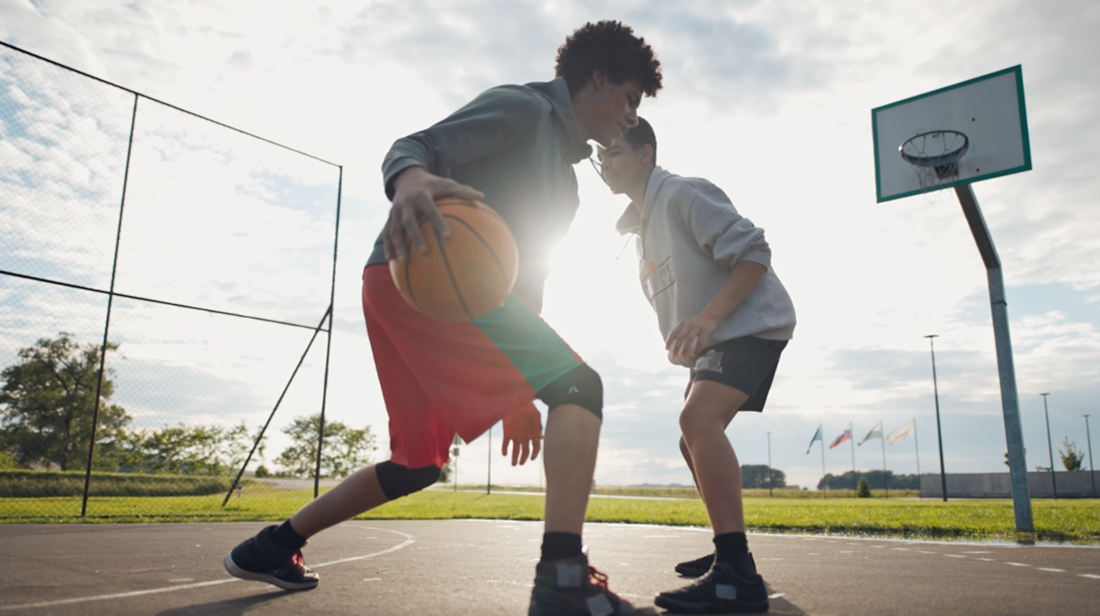
- Banner Launched March 2022

- "Four Ways to Live Your Best Life" launched May 2022
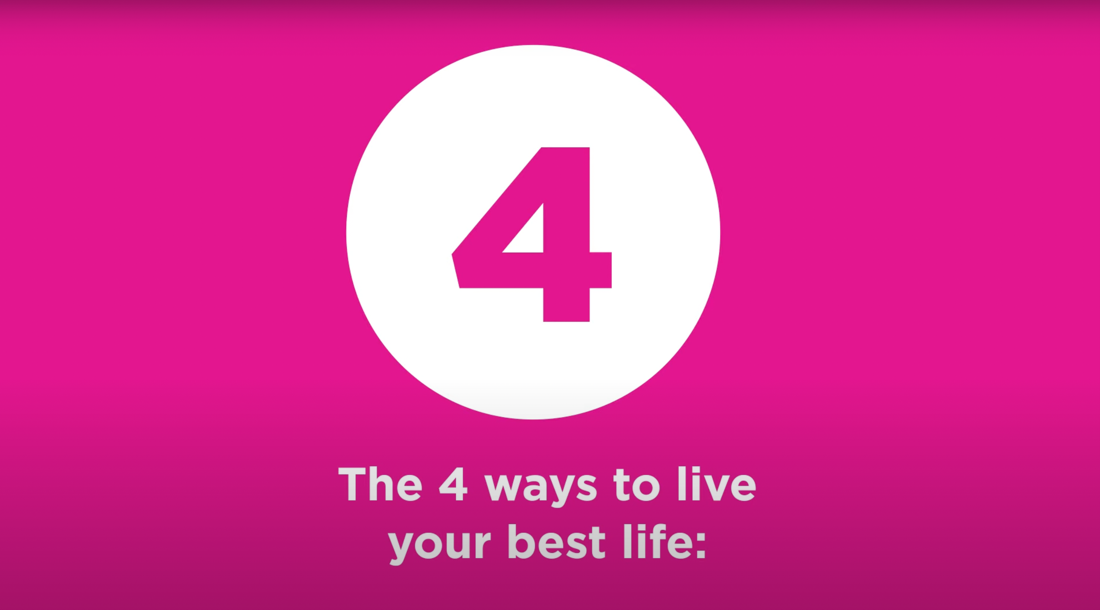
- Banner Launched May 2022

- "Keeping Safe": digital ad launched May 2022
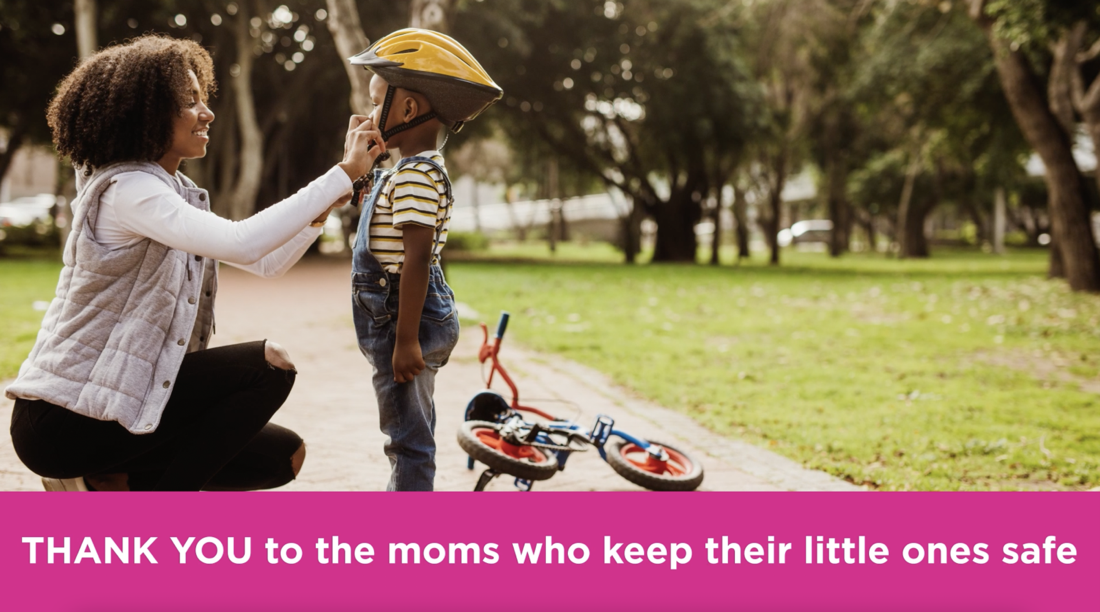
- "Safety Comes First": digital ad launched May 2022
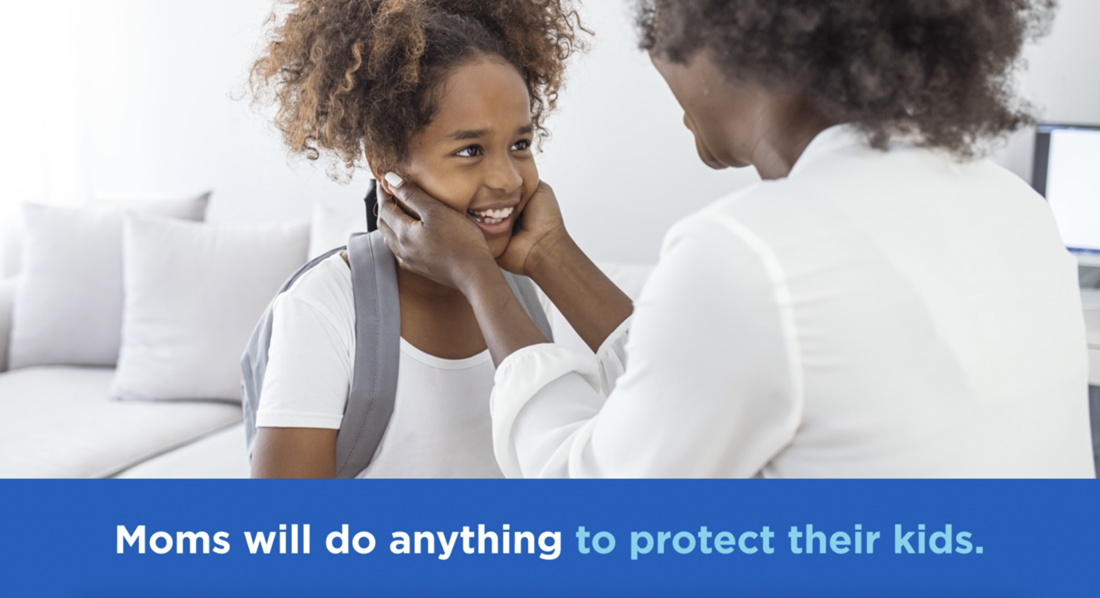
- Ad Launched May 2022
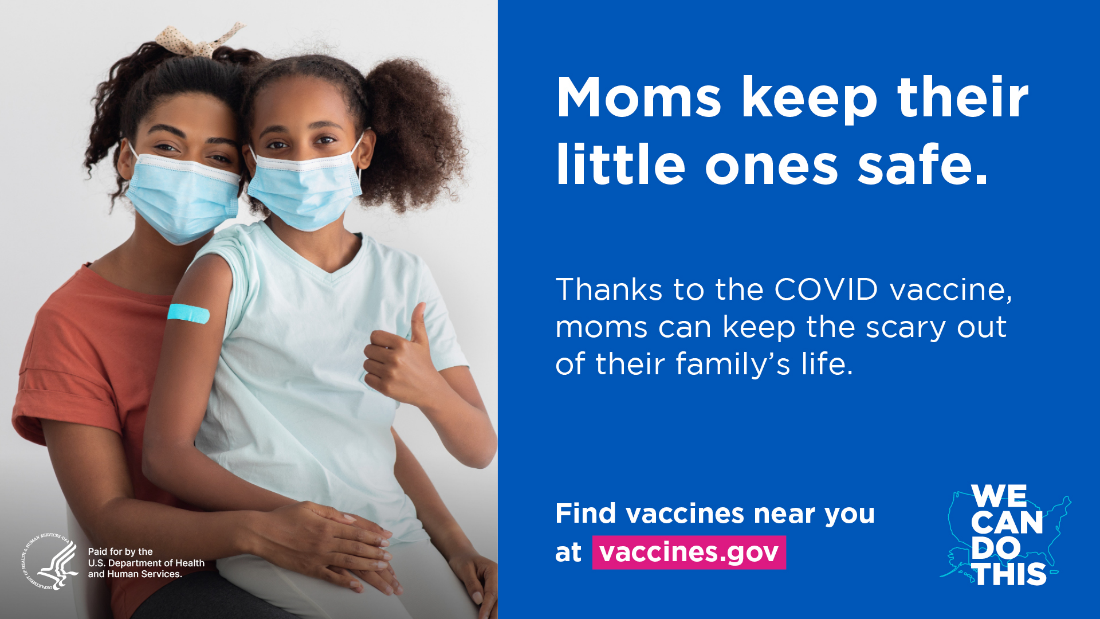
- "I've Got This": Television Ad Launched June 2021.
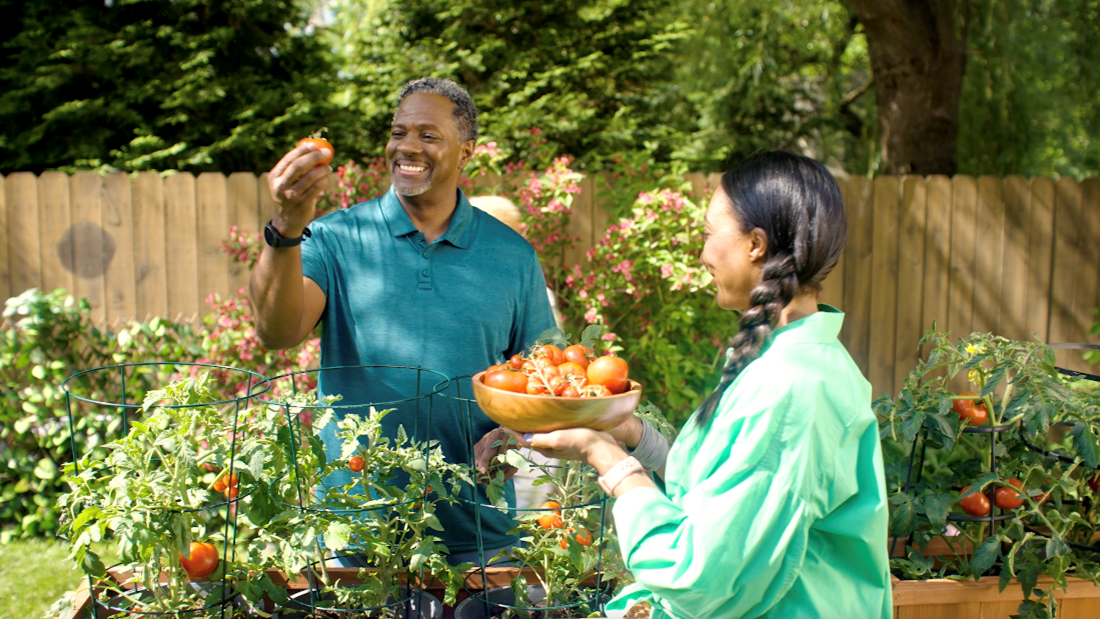
- Ad Launched June 2022

Contact Us
Please visit cdc.gov/coronavirus for more information on COVID, or visit WeCanDoThis.HHS.gov and click on “Contact Us” for questions about HHS’s work to boost public confidence in vaccines.
